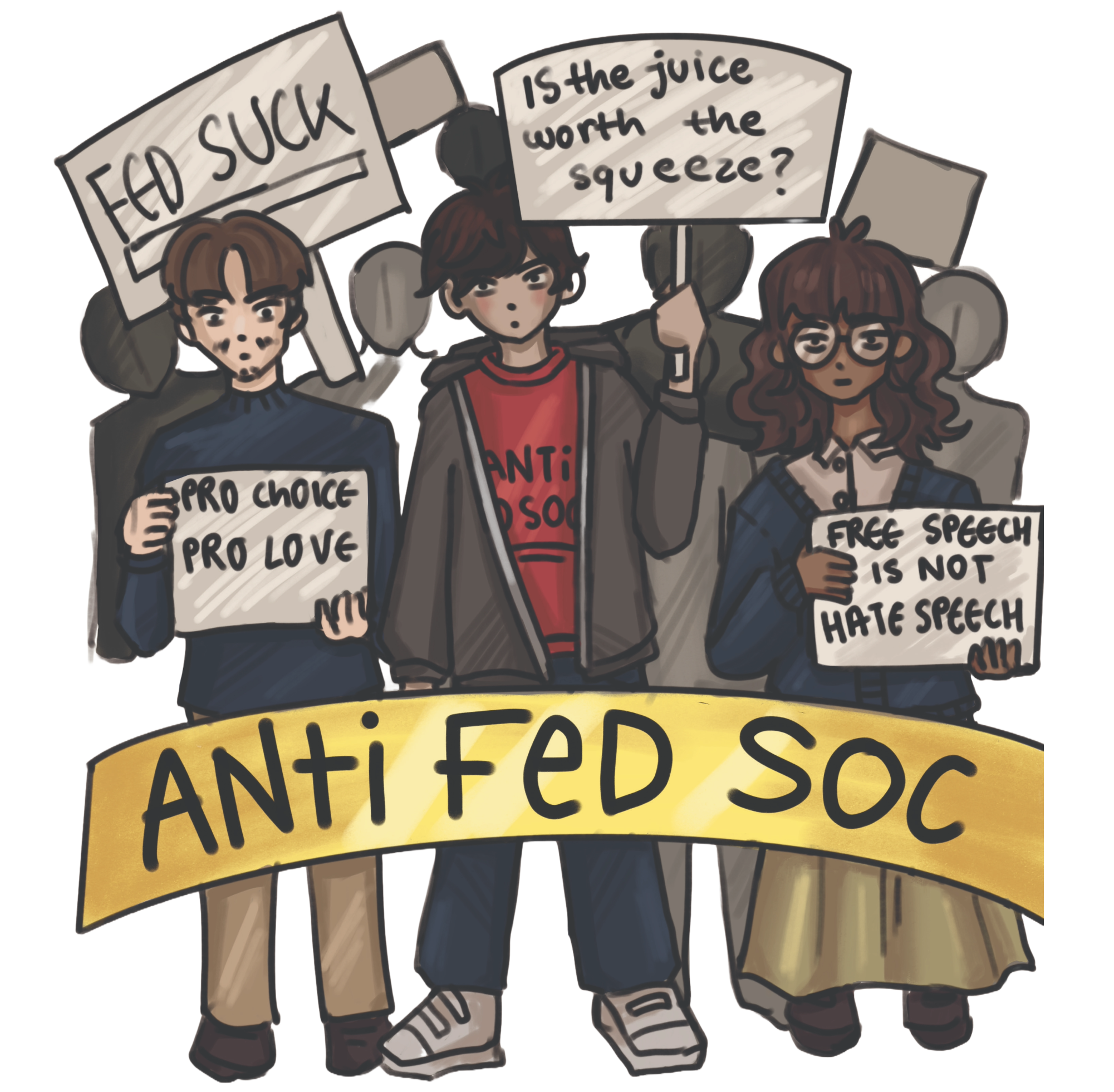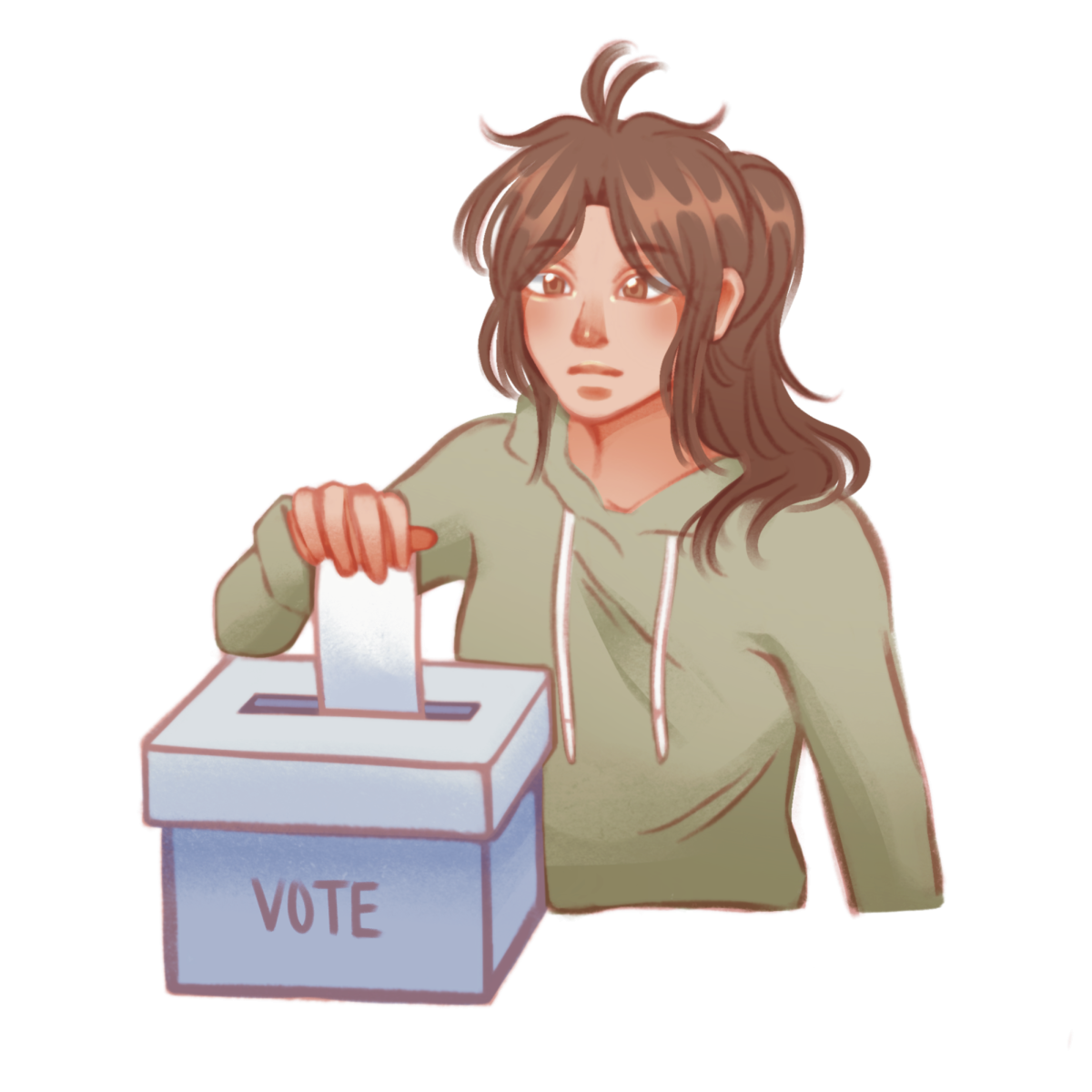Controversy arrived at Stanford Law School on March 9 when students protested a scheduled talk by Kyle Duncan, a 5th Circuit judge. Duncan was invited to speak by Tim Rosenberger Jr., president of the Stanford Federalist Society, to discuss gun control and social media regulation. But during Duncan’s speech, students opposed to his views arrived, and administrators intervened, ultimately leading to federal marshals escorting Duncan off campus. The incident has sparked an extensive debate on the future of free speech at Stanford and other college campuses.
Rosenberger said he invited Duncan because of his status and knowledge of legal issues.
“This is a judge who sits one level below the Supreme Court, nominated by the president and confirmed by the Senate,” Rosenberger said. “This is a serious person with important things to say, and we wanted him to speak at Stanford. Specifically, we wanted to hear about some issues going through the 5th Circuit right now, namely gun control and social media regulation.”
According to The Hill, Duncan is a prominent figure in the conservative legal movement. He has a background in practicing law with a focus on anti-LGBTQ cases. He served as the general counsel for the Becket Fund for Religious Liberty during a Supreme Court case against the contraceptive mandate in ObamaCare. As a judge, his decisions have been consistent with the majority of Trump appointees.
On the day of the speech, Rosenberger said he discovered posters across campus with what he said were obscene messages directed at the Federalist Society and Duncan.
“There were signs with headshots of everyone on my board saying we should be ashamed,” Rosenberger said. “Other posters listed supposed wrongs the judge had committed without any evidence or sources. One poster even implied that the judge’s decisions and work with the Federalist Society led to transgender suicides.”
Rosenberger said Stanford did little to mitigate the opposition besides setting up a location on campus for students who felt uncomfortable with Dunan’s visit.
“The school had set up a safe space for students upset by the judge’s visit, but it became a rallying point for the mob,” Rosenberger said. “When the judge entered the building, a gauntlet of people yelled things at him. The comments became more aggressive as he moved closer to the event room, making it difficult for him to get a word in edgewise.”
Rosenberger said as student protests scalated, Tirien Steinbach, Associate Dean for Diversity, Equity, and Inclusion, approached Duncan with pre-written remarks about how his decisions and work upset students. Although Steinbach refrained from asking Duncan to leave, Rosenberger said her remarks failed to support a culture of free speech.
Steinbach, though, said many students on campus felt unsafe with Dunan’s presence on campus due to his previous legal decision and wanted Duncan to reconsider his speech.
“Do you have something so incredibly important to say about Twitter and guns and COVID that it is worth this impact on the division of these people who have sat next to each other for years?” Steinbach said.
Following the incident, Steinbach was put on unpaid leave by Stanford Law School.
In addition, Stanford Law School Dean Jennifer Martínez wrote a letter to the community outlining the future of free speech at Stanford.
“I believe our commitment to diversity and inclusion means that we must protect the expression of all views,” Martinez said. “While some of you may disagree with my views, I look forward to continuing the conversation about how we can create a learning environment that both respects freedom of speech and ensures that we support all of our diverse community members on their path to becoming lawyers.”
However, Gunn senior Paul Kramer, founder of the nonprofit Youth in Policy, said Steinbach’s actions have damaged Stanford’s commitment to free speech.
“(Students were) trying to silence the conservative voice, which is dangerous to discourse,” Kramer said. “Discourse is incredibly important at Stanford Law School because those are the future people making our laws.”
However, English 10A teacher Lizzie Dekraai said she disagrees with the notion that students were silencing Duncan.
“They actually didn’t disrupt the speaker,” Dekraai said. “He went in, intending to give a speech, but then he just jumped straight into Q&A. There was a back-and-forth Q&A, and the judge called people idiots, morons and bullies.”
However, Kramer said the root cause of the protest is that universities are incubating students in a political bubble. He said colleges are creating students who become close-minded to opposing opinions.
“(Libreal organizations) on Stanford’s campus has hosted dozens of speakers just as polarizing,” Kramer said. “The only difference is that a much smaller population of conservatives is willing to protest, typically because they’re used to a majority liberal campus and not being exposed to differing opinions.”
Regardless of the protests’ root causes, Rosenberger said he is hopeful that the incident will help Stanford reshape its policies surrounding freedom of speech.
“I think there’s some plan in that letter to have a committee of faculty that looks into the culture of speech and policy around speech, and that’s probably worthwhile,” Rosenberger said. “The university has said that Steinbach did not follow the existing policy by scolding the judge rather than getting things back on track.”










